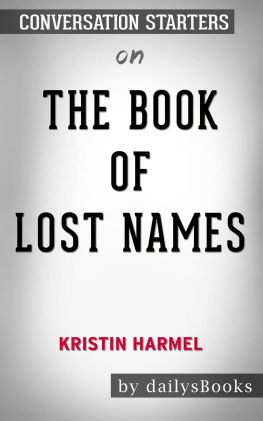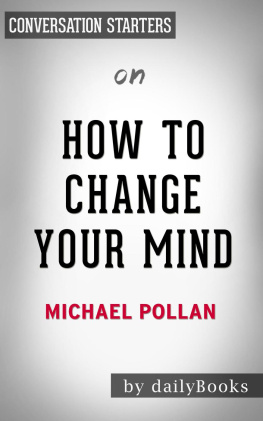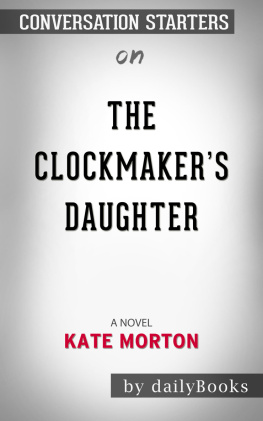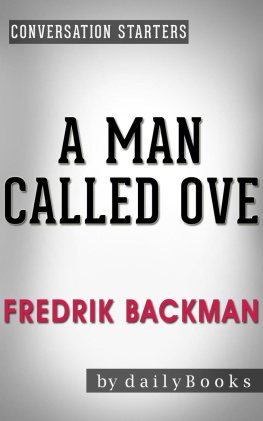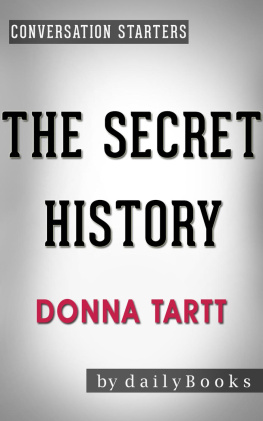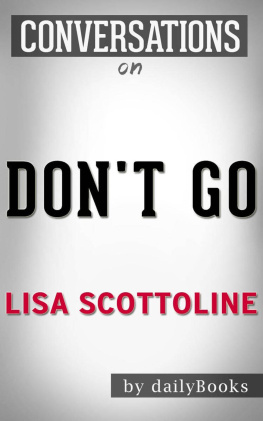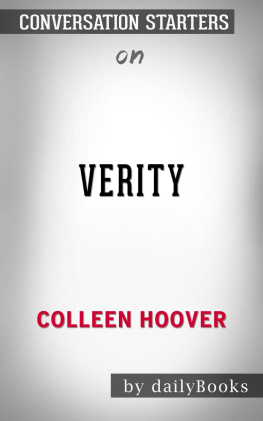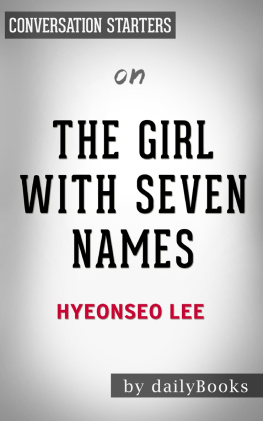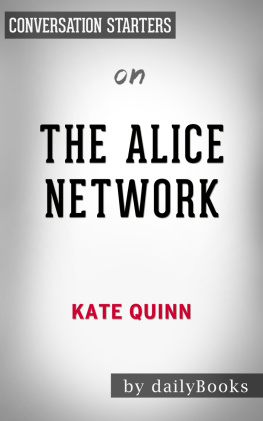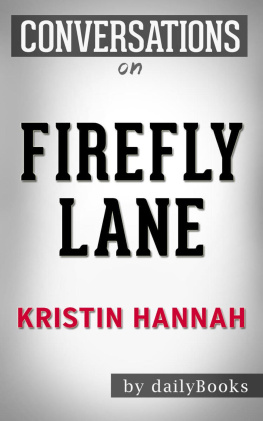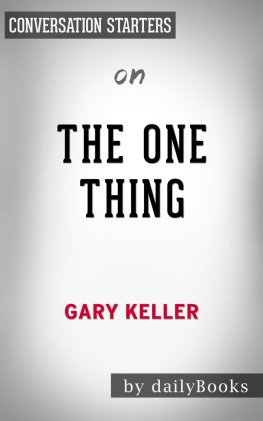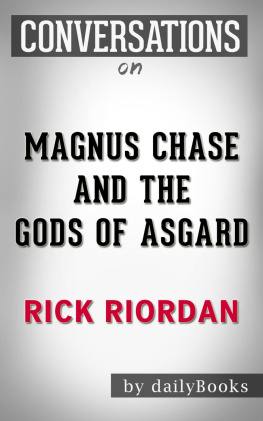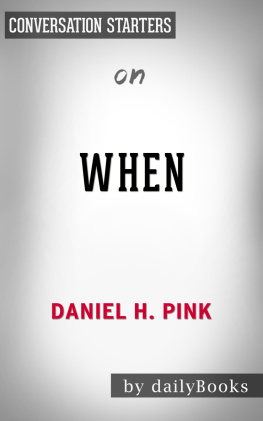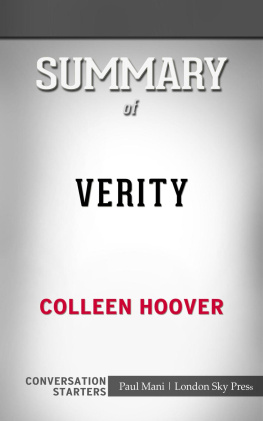Conversation Starters
on
Kristin Harmels
The Book of Lost Names
By dailyBooks
About Us:
THROUGH YEARS OF EXPERIENCE AND FIELD EXPERTISE, from newspaper featured book clubs to local library chapters, dailyBooks can bring your book discussion to life. Host your book meets as we discuss some of todays most widely read books.
Copyright 2020 by dailyBooks. All Rights Reserved. Published in the United States of America
Disclaimer: This is an unofficial conversation starters guide. If you have not yet read the original work we encourage you to do so first before reading this Conversation Starters Product names, logos, brands, and other trademarks featured or referred to within this publication are the property of their respective trademark holders and are not affiliated with dailyBooks. The publisher and author make no representations or warranties with respect to the accuracy or completeness of these contents and disclaim all warranties such as warranties of fitness for a particular purpose. This guide is unofficial and unauthorized. It is not authorized, approved, licensed, or endorsed by the original book's author or publisher and any of their licensees or affiliates. No part of this publication may be reproduced or retransmitted, electronic or mechanical, without the written permission of the publisher.
Tips for Using dailyBooks Conversation Starters:
EVERY GOOD BOOK CONTAINS A WORLD FAR DEEPER THAN the surface of its pages. The characters and their world come alive through the words on the pages, yet the characters and its world still live on. Questions herein are designed to bring us beneath the surface of the page and invite us into the world that lives on. These questions can be used to:
- Foster a deeper understanding of the book
- Promote an atmosphere of discussion for groups
- Assist in the study of the book, either individually or corporately
- Explore unseen realms of the book as never seen before
Table of Contents
Introducing The Book of Lost Names
T he Book of Lost Names is a historical fiction set in the World War era. Its story revolves around the young protagonist, Eva Traub, a twenty-three-year-old Jew born in France pursuing her doctorate in English literature. Eva's parents, her mother Faiga and father Tatus, are Jewish and lived in Poland before fleeing to Paris. They thought they were saving their daughter from an oppressive government and possible harm by moving to Paris. But during the wake of World War II in 1942, the Nazis invaded Paris, and the family realized that they were not safe.
To make matters worse, her father was arrested by the Germans. The family was warned by Joseph, her childhood friend and neighbor, of a possible roundup of Jewish people, but her father disregarded it as a false alarm. Tatus told Eva to meet a friend who could help them secure forged identity documents and that he had already made the payment in advance. To get the papers, Eva and her mother flee for the Free Zone near the Swiss border. They traveled to Aurignon, France, on a friend's advice, where they found lodging, but the observant owner realized that their papers weren't real. However, the incident ended well because the owner turned out to be a member of the French Resistance. He later asked Eva to help forge birth certificates and travel documents for Jewish children. Fuelled by her desperation to leave Paris and save her mother, she discovered her unique talent. She quickly learned forgery and was happy to have found a way of helping others and the French Resistance. Her typing skill came in handy as wella thing she learned after spending countless hours watching her father repair typewriters. Eva created a slew of fake documents for thousands of Jews that included identity papers, travel documents, birth certificates, ration cards, and mastered the art of copying signatures.
While Eva found her purpose in life, her mother changed after the loss of her husband. Faiga turned into a difficult, angry, and bitter woman who wanted Eva to concentrate on trying to save her father from prison. If she helped the Resistance, she and her mother would have a place to stay. At the same time, she felt like she was doing her part to get back at the Germans. Eva spent her time at the local church with Pere Clement, a priest, and Remy, a fellow forger. Together, they created new identities for hundreds of Jewish people escaping to Switzerland. While doing their work, Eva noticed that the majority of the new identities they created were for young Jewish children who were separated from their parents and were very young to remember their real names. She feels heartbroken that they may lose the chance to connect with their family once the war ends, and hence together with Remy, she comes up with a brilliant idea. Remy's love for math and the Fibonacci sequence give him an idea of how to code real names without putting anyone in danger. Together, they create the book of lost names to help the children trace back their true identity once the war is over. While working on their mission, a slow romance developed between the two but Eva was conflicted, as Remy was not a Jew.
Eva was torn between her desires and her mother's wishes. Mrs. Traub continually reminded her daughter that her duty to both the family and their heritage is to marry a young Jewish man and frequently worried about her daughter's close association with Remy. Eva found herself faltering between her duty to fulfill her mother's dreams and expectations and her own young romantic attractions and passions. However, Remy and Eva get separated when the Germans get wind of the Resistances activities and arrest Remy. He is roughed up, and Eva was tormented and concerned about his safety, but Fr. Clement asked her to lay low for a while, or she could risk arrest too. She does as the priest had asked her and hoped to hear from Remy, but she regrettably did not. Thinking that he was dead, she leaves and settles in the United States.
Many decades later, Eva is now a librarian in the United States, nearing retirement. She can still remember The Book of Lost Names that fell into the Nazis hands toward the end of the war sending the Resistance into a frenzy. She shut out her past and has kept it from her family. However, one day, she glances upon a newspaper article about a librarian in Berlin while working in the library. In the article was the photo of a book Epitres et Evangiles (Epistles and Gospels), called The Book of Lost Names by Eva and Remy. The librarian was trying to connect people with books that might have been theirs before the Nazis looted the libraries all over Europe. Eva had thought that the book was lost forever, and when she sees it after such a long time, she decides to claim it before it goes missing again. She reignites her old passion for helping the Jewish kids who must now have become adults and trying to locate their families. Eva flies to Berlin and meets the librarian, Kuhn, and assures him that the book was hers. She begins decoding the names of the children she had preserved in the book years ago. She is pleasantly surprised to find Remy approach the library, too, claiming the book to be his. The two reunite after decades of separation. Despite being in their eighties, Remy still loves her, the two kiss each other and decide to spend whatever time they have left together.
Next page
